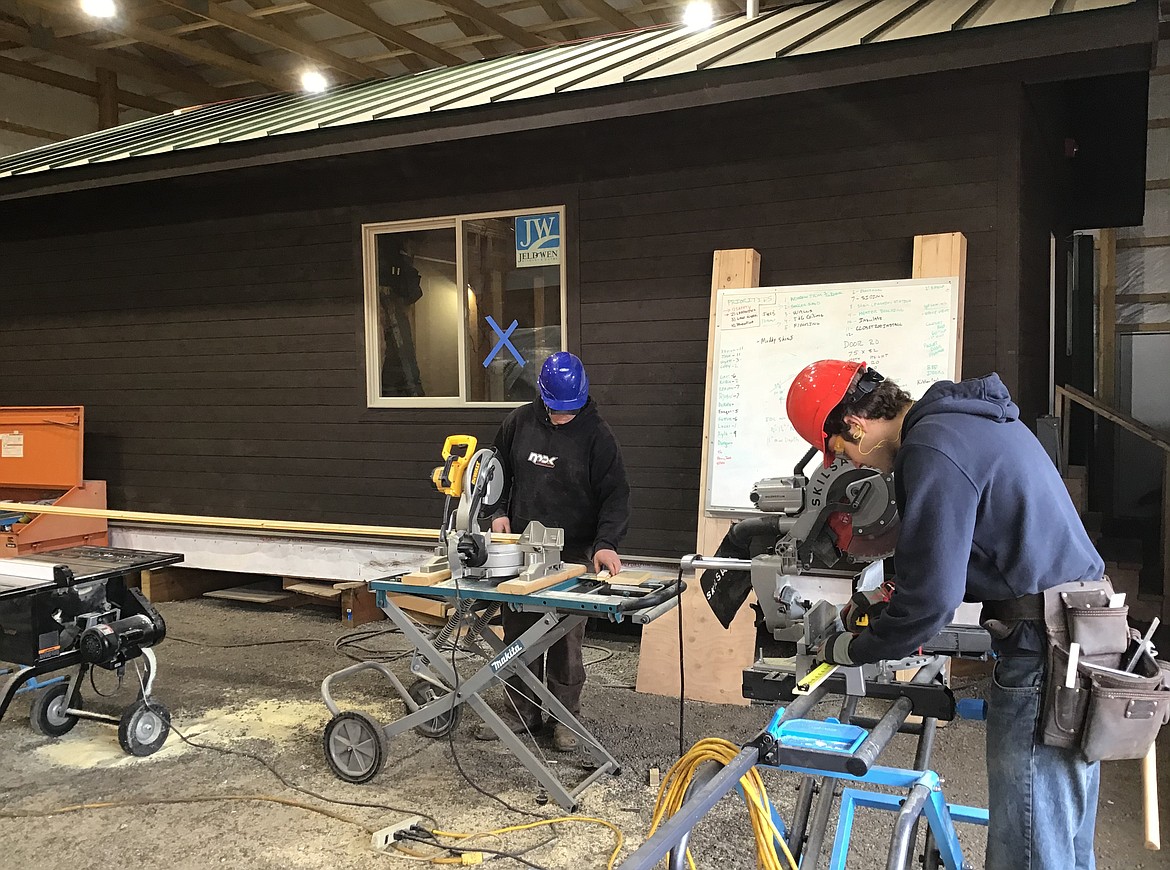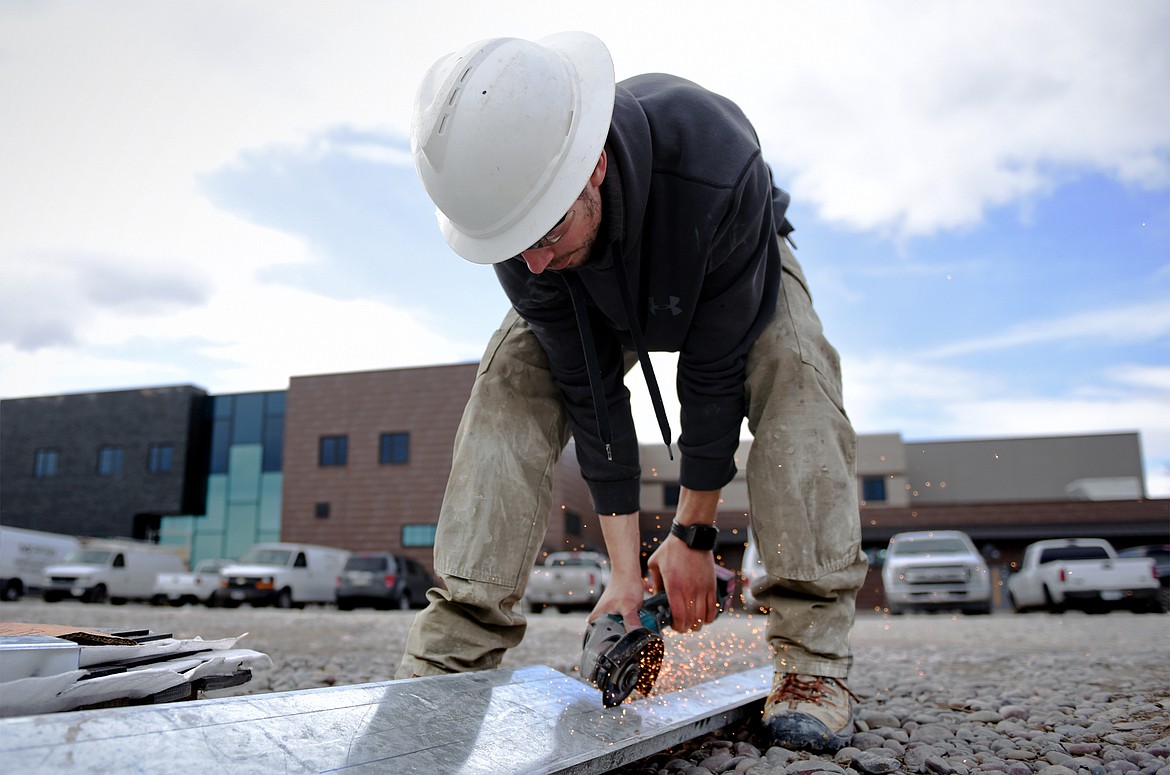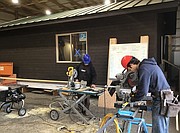Swank programs training future tradespeople
Industry leaders and educators are hoping to teach the tools of the trades to the next generation of workers.
As the Flathead Valley continues to grow, the demand for work in local trade professions like construction has never been higher. But with the aging workforce and fewer new employees entering these fields, local employers have struggled to meet their workforce demands.
The biggest issue most industry leaders have observed is a skill gap between the positions being vacated by older, retiring tradespeople and the newest members of the local workforce.
But Swank Enterprises is rolling out a tactic it hopes will help address this discrepancy.
This year, the local commercial construction company is debuting an apprenticeship program to equip employees with the skills, training and experience to advance their trade careers and fill in the gaps in the local industry.
“We at Swank wanted to further develop our workforce,” explained RG Dickey, the community development director at Swank. “It makes a ton of sense for us.”
The new three-year “up-skilling” program for Swank employees is currently in its first semester. The apprenticeship program, administered at Flathead Valley Community College but fully funded by Swank, provides the classroom education and on-the-job training for participants to go from the laborer level to full journeyman-level carpenters at the end of three years.
Participants in the program work on their respective job sites throughout the program while complementing their hands-on experience with classes on topics like safety. There is one in-person class a week and two semester-long sessions per year for three years.
Dickey explained the new program is “tailored to Swank.” Stan Deblauw, a retired Swank superintendent, teaches the class at FVCC and helps the students learn “how to excel within Swank.”
But Dickey insisted this initiative “makes a ton of sense for everybody in the community.”
“This is a lot bigger than Swank,” he added.
He believes the program is a big benefit for local workers, who gain education and experience, earn accreditation that is accepted statewide and advance to a higher pay level and benefits. “They can make more money and develop careers,” Dickey said.
And the general idea of elevating the skilled workforce is a boon throughout the valley and the state. “It’s a win-win across the board,” Dickey said. “Ultimately, it benefits the community. They don’t have to leave to get trained. We can train them internally.”
“It improves the skill level in the state of Montana,” he added.
But the opportunities for trades training and career development don’t just start at the entry-level employee stage. Swank has also signed on with local pre-apprenticeship programs at local high schools to help get the ball rolling with high school students.
Flathead, Glacier and Columbia Falls high schools all have pre-apprenticeship programs in place where students complete carpentry projects to learn the practical skills for a trades career and test out whether this path is a good fit. Swank recently teamed up with the high schools to add an industry component to these programs, guaranteeing an interview with their company to every student who completes the pre-apprenticeship. The hours spent on the pre-apprenticeship projects also count toward their apprenticeship training for those who choose to continue to the next step.
“The crowning jewel of the program is the industry connection,” Dickey stated.
This is the fifth year Flathead and Glacier students have constructed a “student-built home” through the program, which provides housing for community members and valuable experience for the students. The program has had 140 graduates so far.
Columbia Falls High School is in its first year of a pre-apprenticeship program. Students in the Building Trades class are currently constructing a cabin that will be transported to Polebridge to provide housing for Glacier National Park employees.
Brock Anderson, the industrial arts teacher at Flathead/Glacier, said the program provides much-needed opportunities to “hands-on learners” who want to join the workforce quickly, without going into debt.
He pointed out, “our society values success as a college degree.” Without the pre-apprenticeship program to train students for a different career path, he said, “there was a huge void we were missing.”
Terry Aubrey, the Northwest Montana representative for the state’s Registered Apprenticeship Program, agreed on the importance of an alternative track to prepare students for careers. “It’s good for our young people to know there are other pathways to get into careers,” he said.
Plus, he added, “they’re not just looking for a job, they’re looking for a career.”
And Aubrey said pre-apprenticeships and apprenticeships—which can be implemented in a wide array of trade industries—have widespread value for the local community and the state.
They are helping to increase the “available workforce” as employers “struggle for employees, especially skilled employees,” Aubrey pointed out. “We’re preloading the pipeline.”
Reporter Bret Anne Serbin may be reached at bserbin@dailyinterlake.com or 758-4459.





